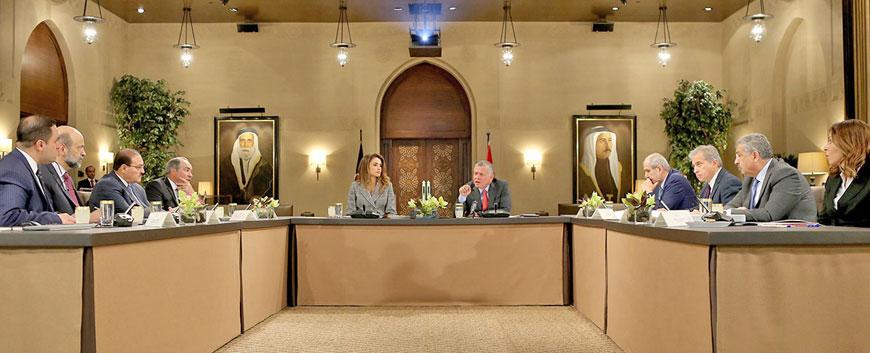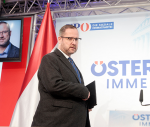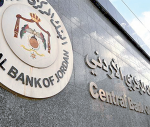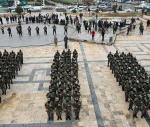You are here
King, Queen check on progress in human resources development strategy
By JT - Sep 17,2018 - Last updated at Sep 17,2018
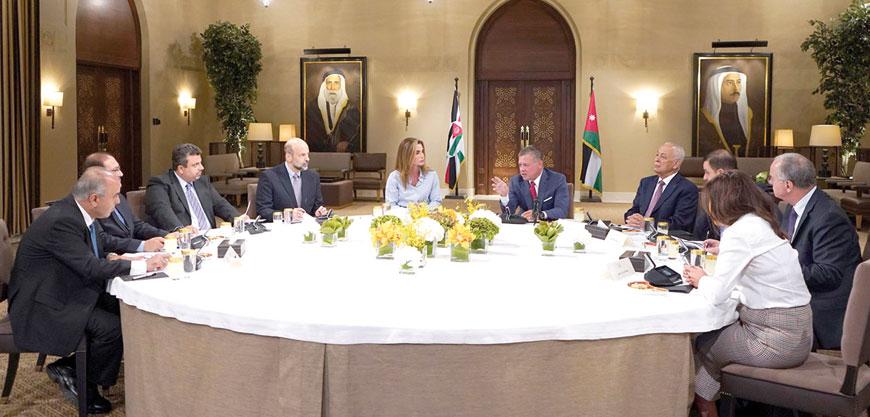
Their Majesties King Abdullah and Queen Rania attend a meeting to check on progress in a human resources strategy in Amman on Sunday (Photo courtesy of Royal Court)
AMMAN — His Majesty King Abdullah, in the presence of Her Majesty Queen Rania, on Sunday chaired a meeting to follow up on implementing the 2016-2025 National Strategy for Human Resources Development and to assess goals achieved after two years of launching the plan.
During the meeting attended by the Prime Minister Omar Razzaz at Al Husseiniya Palace, His Majesty underlined the importance of reviewing what has been already achieved of the strategy on the ground, emphasising the need to speed up the implementation of the remaining part of the plan without any delay.
King Abdullah stressed that human resources development is a strategic option and a priority for Jordan “whose human resources are a source of pride, glory and strength for the country”.
His Majesty also confirmed that citizens should see real progress in the education services in a way that eases the economic burden. His Majesty pointed out that it is necessary to expedite plans to reform the technical and vocational training sector to provide youth with skills demanded in the labour market. In addition, information technology should be employed as soon as possible in various education programmes.
The prime minister outlined the strategy’s key goals achieved, indicating that 35 per cent of the projects designed for this purpose have been already implemented.
He also pointed out that the National Centre for Curricula Development is working at full capacity, developing new maths and science syllabi in cooperation with local experts according to international standards in this domain. He also noted that new schools have been built to accommodate the increasing number of students and that teachers have been trained in up-in-date teaching methods.
The premier also explained that efforts in expanding kindergartens are in line with the strategy’s recommendations, noting that the percentage of children’s enrollment reaches 100 per cent in 2025.
He also pointed out legislative and institutional improvements and procedures put in place to enhance good governance at universities.
Minister of Labour Samir Murad outlined achievements pertaining to technical and vocational training, which have mainly to do with reinforcing the private sector’s role in developing the training programmes that respond to the labour market’s demands and meet its needs.
He pointed out the launching of a comprehensive restructuring process to reform technical and vocational education, aimed at removing obstacles to youth’s contribution to advancing the national economy. This would be achieved through developing modern legislation that supports the sector according to the best international practices.
The minister added that the reform structure also aims at increasing the partnership between the public and the private sectors. It is also expected to establish a complete reference framework for necessary financial and institutional supervision to improve the quality of training and develop youth’s technical and vocational skills.
Related Articles
AMMAN — “Human capital must be made a priority in the Kingdom,” the Jordan Strategy Forum (JSF) said on Sunday, stressing the need to take m
AMMAN — The National Committee for Human Resources Development on Sunday reviewed progress and recommendations towards developing a we
AMMAN — His Majesty King Abdullah on Wednesday chaired a meeting, attended by Her Majesty Queen Rania, to follow up on the implementation of


